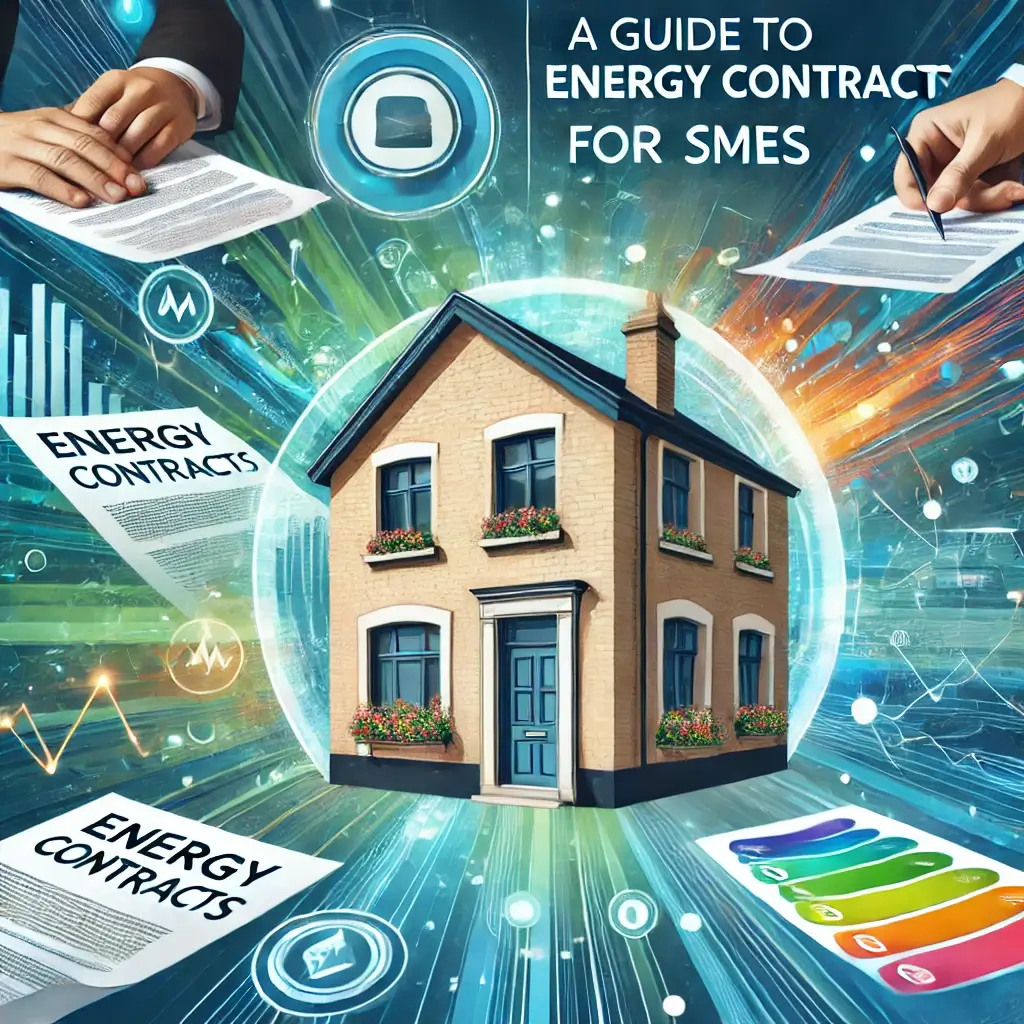When running a small or medium-sized enterprise (SME), controlling overheads like business energy costs is crucial. One key area where SMEs can optimize their expenses is through energy contracts. Understanding the types of energy contracts available and what to consider when choosing one can save your business significant time and money. Here’s a comprehensive guide to help you navigate business energy contracts and make the right choice for your company.
1. Types of Business Energy Contracts
Business energy contracts generally fall into the following categories:
- Fully Fixed Contracts
These contracts provide price certainty by fixing both the unit rate and standing charges for the entire duration of the contract. While this offers protection against market price fluctuations, you may miss out on any potential savings if energy prices drop. - Part Fixed Contracts
A part-fixed contract locks in certain aspects, like the unit rate, but leaves other charges, such as third-party costs, variable. This offers a balance between stability and flexibility, allowing your business to benefit from some market movements while still having a level of predictability. - Pass-Through Contracts
Pass-through contracts allow you to fix some components of your bill while passing other costs, like government levies, directly to your business. While this can be cheaper when energy prices are low, it introduces greater risk as external factors can lead to higher costs. - Deemed Contracts
Deemed contracts are default rates imposed by your supplier if you don’t actively choose a contract or when you move into new premises. These tend to be more expensive and should be avoided by SMEs if possible. To learn more about your rights under deemed contracts, visit Ofgem’s guide on business energy contracts.
2. What Should SMEs Consider When Choosing a Business Energy Contract?
Choosing the right energy contract depends on multiple factors. Here’s what your business should consider:
- Contract Length
Some contracts offer fixed terms of 1 to 5 years. If you’re looking for price stability, longer-term fixed contracts can provide peace of mind. However, shorter-term contracts give you flexibility to switch when better deals arise. - Energy Consumption Patterns
Analyze your business’s energy consumption habits. If your usage is predictable, a fixed-rate contract might be suitable. If it varies, a part-fixed or pass-through contract might offer more value. - Flexibility to Switch Suppliers
Early termination of contracts usually incurs fees. Therefore, it’s important to understand the switching clauses in your energy agreement. SMEs might prefer contracts with no exit penalties, giving them the flexibility to move to better deals. - Standing Charges
Standing charges can vary significantly between suppliers and contracts. Compare these fees across multiple providers, as they can substantially affect your overall energy costs. - Half-Hourly Meters
Businesses with high energy usage often have half-hourly meters installed, which automatically record electricity usage every 30 minutes. If your SME has this setup, certain energy contracts designed specifically for half-hourly metering may offer competitive rates.
3. Tips for Finding the Best Business Energy Deals
- Compare Multiple Suppliers
Don’t just stick with the first contract you’re offered. Use our energy comparison tool to explore deals from multiple suppliers and see what suits your business’s consumption and budget. - Consider Your Business Credit Score
Your business credit score can impact the types of contracts you qualify for. Improve your credit rating by paying bills on time and managing debts to get access to better rates. For tips on reducing energy costs, see the UK Government Business Energy Efficiency guide. - Use a No-Commission Broker
Traditional brokers often work on commission, which can obscure the best deals. Consider working with a no-commission broker like us for unbiased advice. Learn more about our approach on our About Us page.
4. Why Choosing the Right Energy Contract Matters for SMEs
The right energy contract can help SMEs save thousands over the years. Fixed contracts provide certainty, while more flexible options may offer cost-saving opportunities. Always keep your energy consumption and business needs in mind when comparing contracts to make sure you’re choosing the best fit.
Conclusion
Navigating energy contracts can be complex, but understanding the different types and what to consider makes the process more manageable. By taking the time to review your options, you can ensure your SME benefits from the best deals available, ultimately boosting your bottom line. For more personalized advice, reach out to us through our Contact Us page, where we provide transparent, no-commission guidance tailored to SMEs.



